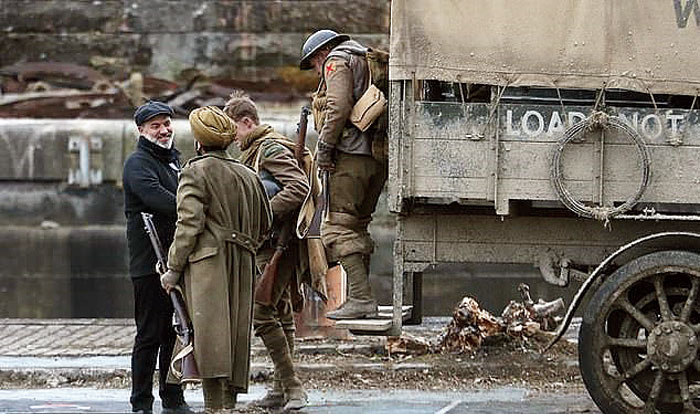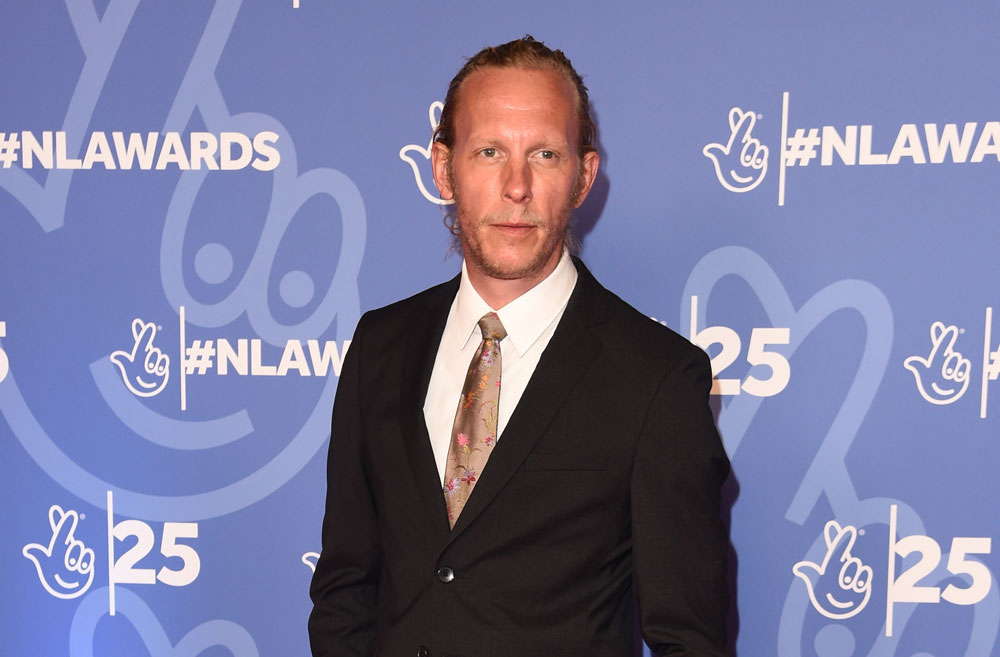A well known English actor, Laurence Fox, has apologised for suggesting that Sam Mendes should not have included a Sikh soldier in his war epic 1917, which has been nominated for 10 Oscars, nine Baftas and won best picture and best director at the Golden Globes.
Fox had protested in TV and radio interviews about the “incongruous” casting of Nabhaan Rizwan as Sikh soldier Sepoy Jondalar and about “forcing diversity on people”.

Sam Mendes with Nabhaan Rizwan Universal Pictures
When it was pointed out to him that his comments were “offensive” since Sikhs had fought in the First World War, Fox initially responded, “I’m not a historian, I don’t know”.
Dr Simon Walker, a military historian at the University of Strathclyde, said: “The remarks by Fox are very much ill-informed.”
Another historian, Peter Singh Bance, also said: “Laurence Fox is incorrect with his facts as Sikhs did fight with British forces, not just with their own regiments.”
Faced with mounting evidence that his remarks were both ill-judged and inaccurate, Fox was later forced to tweet a more fulsome apology: “Fellow humans who are Sikhs, I am as moved by the sacrifices your relatives made as I am by the loss of all those who die in war, whatever creed or colour. Please accept my apology for being clumsy in the way I expressed myself.”
Mendes’s film follows the journey of two young soldiers who venture across enemy lines to deliver a message that could save hundreds of lives. In a brief sequence, Lance Corporal Schofield (played by George MacKay) and the Sikh are shown trying to push a truck out of mud.
In one interview, Fox explained why he had found the Sikh’s presence intrusive: “It’s very heightened awareness of the colour of someone’s skin because of the oddness in the casting. Even in 1917 they’ve done it with a Sikh soldier, which is great, it’s brilliant, but you’re suddenly aware there were Sikhs fighting in this war. And you’re like, ‘OK, you’re now diverting me away from what the story is’.”
When the interviewer wondered if filmmakers were “shoehorning” actors of different ethnicities into dramas, Fox observed: “It is kind of racist - if you talk about institutional racism, which is what everyone loves to go on about, which I’m not a believer in, there is something institutionally racist about forcing diversity on people in that way.”
In a subsequent interview on ITV’s Good Morning Britain, Fox conceded 1917 was a “great movie” but said the casting “felt incongruous” and that people “shouldn’t be afraid to say how they feel”.
Indians will be concerned that more than a century after the end of the First World War, someone as educated as Fox, 41, who went to Harrow School and comes from a famous acting dynasty, is so unaware of basic history.
In World War One, 1.5 million Indian troops, many of them Sikhs, fought for Britain between 1914 and 1918, in Gallipoli, Mesopotamia, Egypt and Italy. When it ended, 113,743 Indians were reported dead, wounded or missing.
Fox is best knowing for playing Detective Sergeant James Hathaway in the British police drama Lewis from 2006 to 2015. In 2016, he and actress-wife Billy Piper were divorced after eight years of marriage.
Laurence’s father and uncle, James and Edward Fox, are both distinguished actors. Another uncle, Robert Fox, is a film producer.
Fox has been at the centre of controversy since he appeared recently on BBC TV’s Question Time as a panel member. He clashed with audience member Rachel Boyle, a university lecturer and race and ethnicity researcher, who claimed the way Meghan Markle had been treated in the press was “racist”.
Fox hit back: “It’s not racism, we’re the most tolerant, lovely country in Europe. It’s so easy to throw the charge of racism at everybody and it’s really starting to get boring now.”
She called him a “white, privileged male” and he called her description of him “racist”. The programme received more than 250 complaints.











